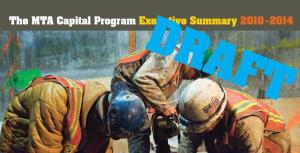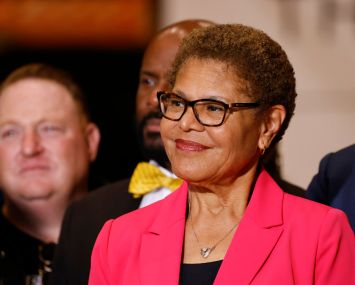$9 B.! M.T.A. Has Hole in Its Five-Year Plan You Could Drive a Train Through
By Eliot Brown April 23, 2010 7:29 pm
reprints Lest onlookers be consumed with the M.T.A.’s current fiscal woes—it has another $319 million gap to fill even after approving a big round of major service cuts and more belt tightening, according to the state comptroller—the transit agency on Friday reminded riders that it is headed for a long-term financial reckoning as well.
Lest onlookers be consumed with the M.T.A.’s current fiscal woes—it has another $319 million gap to fill even after approving a big round of major service cuts and more belt tightening, according to the state comptroller—the transit agency on Friday reminded riders that it is headed for a long-term financial reckoning as well.
Chairman Jay Walder put out a draft of his revised five-year capital plan, a roadmap for $26.3 billion in maintenance and some expansion projects between 2010 and 2014. The only problem: the agency is $9 billion short.
This is not a new problem—it was well-known last year when state legislators passed a bailout package that the plan would provide far less revenue than the M.T.A. and Governor Paterson requested. And Mr. Walder’s plan does call for $1.8 billion in cuts, most seeming to come from fewer station repairs and new train cars.
But the plan is still mostly intact from last year, with the agency fully funding its large plan for the first two years and then leaving the $9 billion gap after 2011. This, of course, punts the giant question of financing the full plan until next year. “Additional State funding will be required for the final three years, but is not being requested with this submission in light of the State’s current fiscal situation,” the plan says.
The M.T.A. has understandably been reticent to cut any of its capital plan, which includes expansion projects such as a new Long Island Rail Road connection to Grand Central and the Second Avenue Subway, warning that cutting back on maintenance is a slippery slope that would send the agency back to its dark 1970s days.
But spending at full levels in the first two years is a risky proposition. The M.T.A. would clearly depend on Albany for new funding, and the state is facing even larger budget holes next year once federal stimulus funding runs out, suggesting that any new revenue plan—be it bridge tolls or other ideas—will be an extra tough sell.


